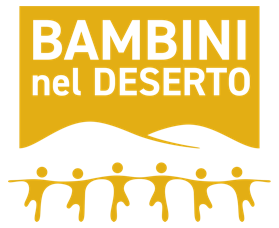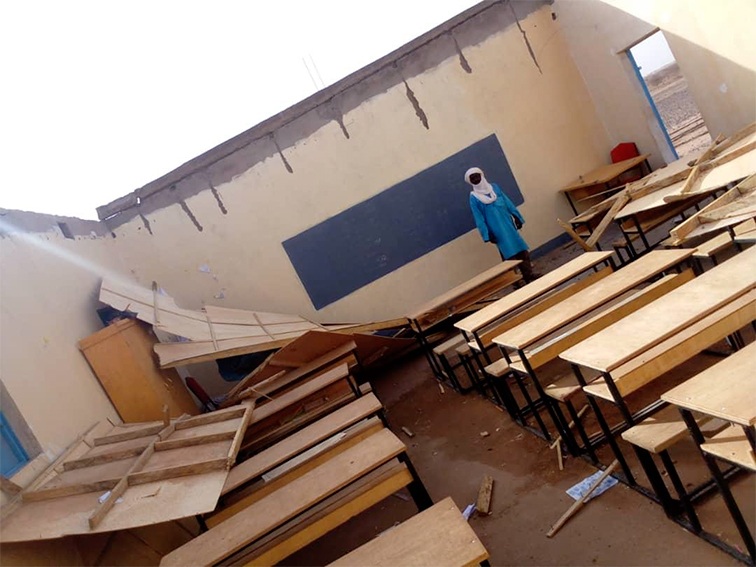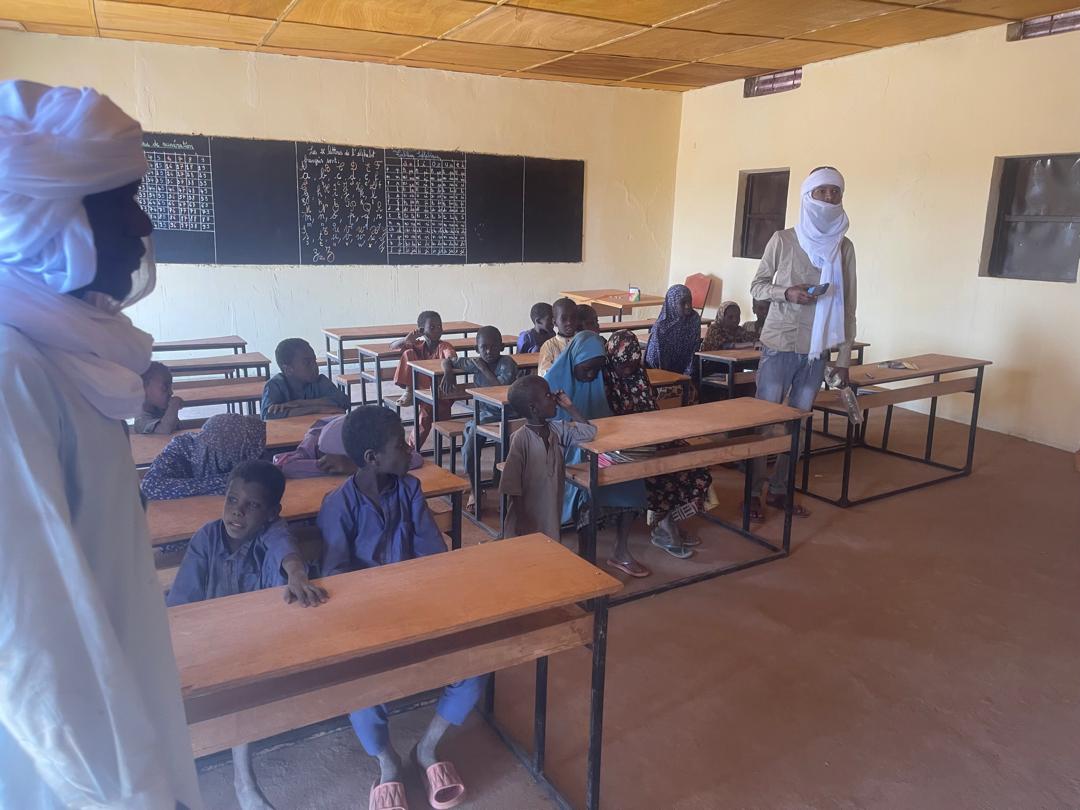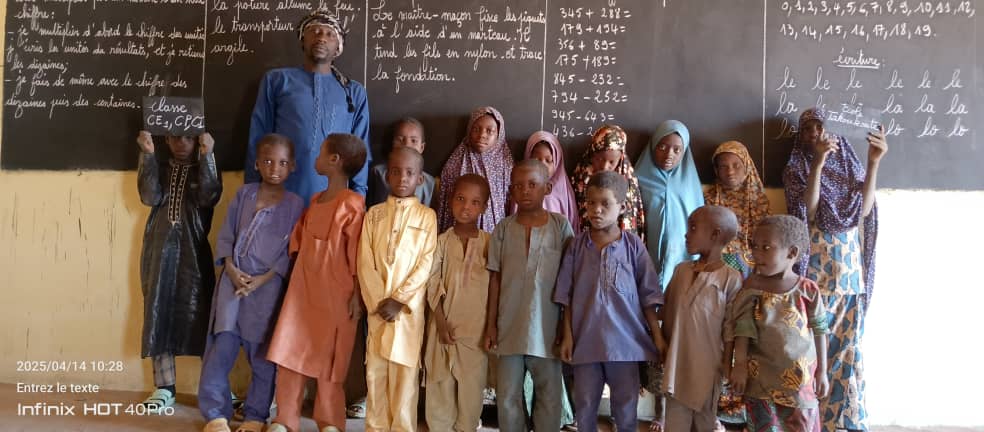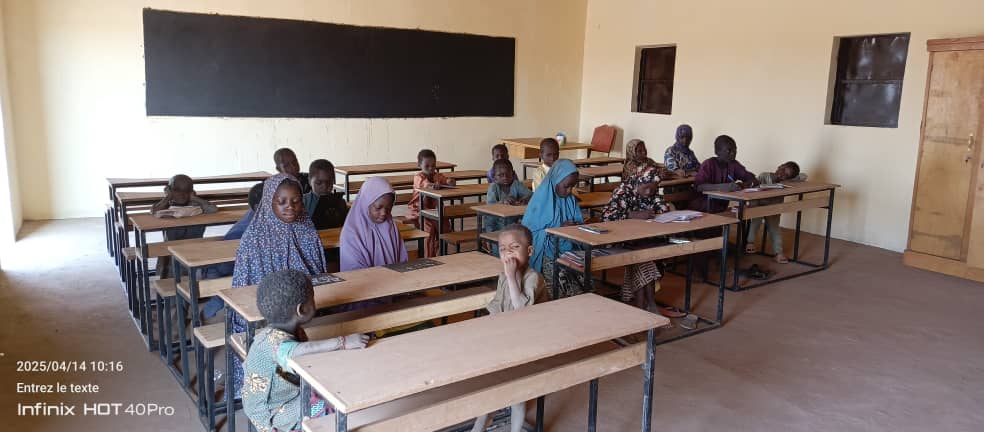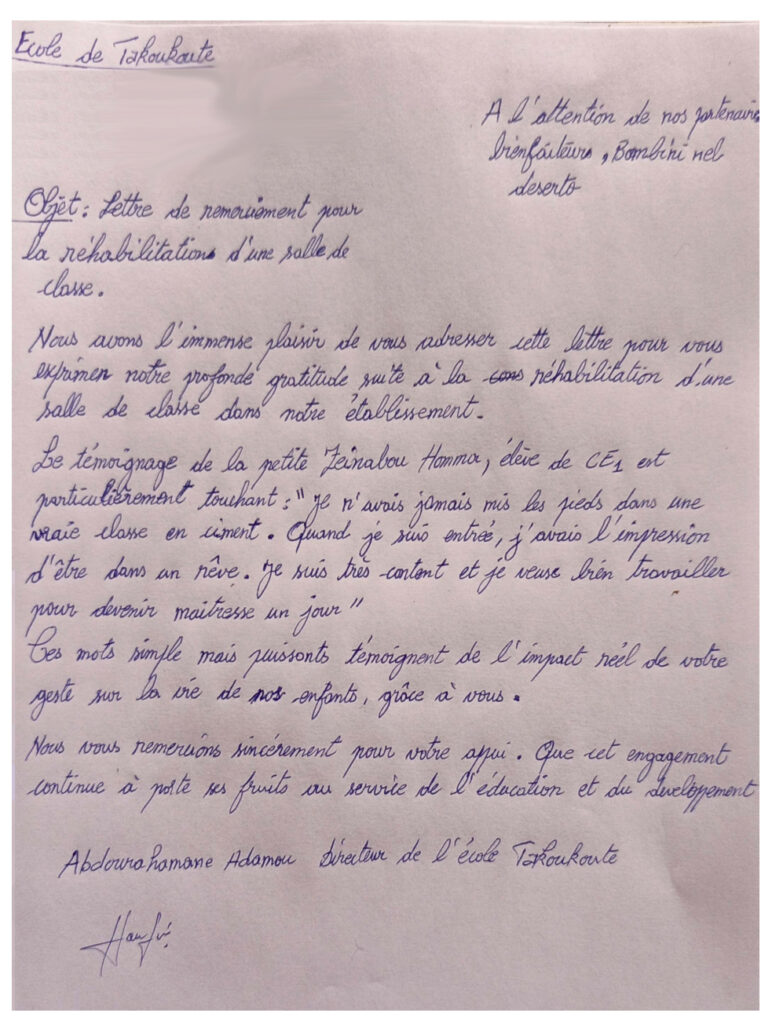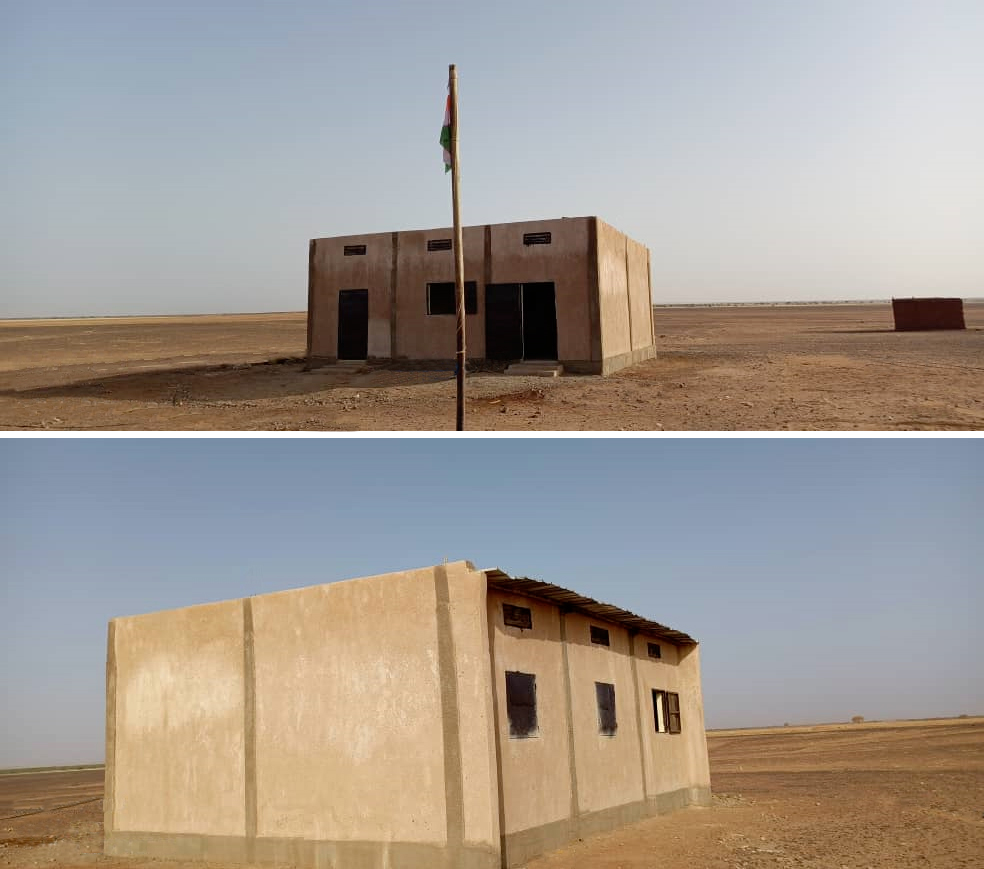6 August 2024 - "During the past night, a strong wind tore off the roof of the School of the Stars. The beams and metal sheets were blown away, scattering hundreds of meters away.
The fury of the wind also caused significant damage to the masonry structure, with beams violently ripped from the walls.
Fortunately, since it was nighttime, the school was empty, and no one was injured. The community’s prompt intervention allowed desks, chairs, and educational materials to be saved and transferred to the nearby mosque..."
We Won’t Stop: The School Must Reopen!
Despite what has happened, we have not been discouraged. Seeing the school devastated by the wind was a heavy blow, but the determination of the community and our commitment remain stronger than any storm.
Allowing children to return to class is a non-negotiable goal. Education cannot and must not stop because it is the key to building a better future. Thanks to solidarity and immediate mobilization, we have already begun working to restore the structure and ensure that lessons can resume as soon as possible.
Every contribution, every gesture of support is essential to restoring children's right to learn in a safe environment. Together, we can rebuild not just a roof, but also the hope for a better tomorrow.
Objective:
Ensure that beneficiaries have access to a safe school structure while implementing an updated multidisciplinary educational program, along with providing meal supplements and potable water.
The project will be carried out in the village of Takoukoute (Agadez Region, Niger), a Saharan area suffering from water scarcity, with annual rainfall below 200 mm and temperatures exceeding 45°C. Traditional wells are vulnerable to floods, which now occur cyclically every three years, likely due to climate change. Extreme weather events, including the seasonal "Harmattan" wind, threaten fragile homes, crops, livestock, and, ultimately, the population.
The Takoukoute community survives through subsistence farming and semi-nomadic herding, both of which are increasingly compromised. Access to essential healthcare services is almost nonexistent, with the nearest clinic located about 35 km away.
In this geographically isolated area, where opportunities for growth are severely limited, education is crucial to breaking the cycle of endemic poverty, which is not just economic but also cultural. Short-term interventions must be complemented by programs—primarily educational—that strengthen local communities' resilience to future crises and equip young people with the skills to manage climate risks and improve their livelihoods. These efforts are essential to breaking the cycle of vulnerability.
Needs Analysis:
- The school requires a storm-resistant roof; students currently attend classes in a straw structure built by their families.
- The school lacks sanitation facilities.
- The teacher, who comes from Agadez, lives in a tent provided by the community.
- The children’s diet is deficient in both quantity and quality.
- The nearest well, after the existing one was filled with mud and debris in 2024, is now 10 km away.
- The curriculum must be enhanced with training that addresses the community's immediate and future needs.
Strengths
- A dynamic and cooperative local community that has set up a makeshift school and attempted to clear the well of debris, despite lacking proper equipment.
- The presence of BnD Niger, staffed with experienced personnel, located 70 km away.
- BnD Italy has over 25 years of experience in the region and in the relevant intervention sectors.
The intervention strategy focuses on eight distinct yet interconnected actions, starting with the consolidation and expansion of the "School of the Stars," built in 2022 by Bambini nel Deserto ETS, which now requires infrastructure improvements, service upgrades, and a multidisciplinary educational program tailored to local needs.
Planned Actions:
- Reinforce the school infrastructure, particularly the roof, by installing additional beams inside the perimeter walls and a double fixing system for the tolè ondulée (corrugated metal sheets). The previous system, implemented before 2024, has shown its limits due to increasingly severe and unpredictable climate phenomena. The new system has already been successfully used in other structures in desert areas. A perimeter wall will also help preserve the school structure and sanitation facilities by reducing the impact of seasonal winds.
Expected Outcomes:
- A safe learning environment for children.
- Improved living conditions for students.
- Increased school appeal for additional students from Takoukoute and surrounding villages, which lack school facilities, as well as for the teacher.
- Build sanitation facilities, consisting of two separate blocks (for boys and girls), equipped with inspectable septic tanks that will allow waste extraction for use as natural fertilizer in the school garden.
Expected Outcomes:
- Improved hygiene conditions.
- Availability of a natural fertilizer reserve for the school garden.
- Construct a brick housing unit for the teacher, providing better living conditions compared to the tent currently offered by the community.
Expected Outcome:
- A more comfortable living environment for the teacher.
- Establish a sheep farm and a 3,000 m² school garden, where 80 trees will be planted along the perimeter, including nitrogen-fixing species such as thorny acacia and fruit trees. Students and their parents will be responsible for cultivating vegetables and managing the livestock.
Implementation Steps:
- Designate a space (sheep pen) for 24 animals.
- Prepare the garden area and plant seeds and crops.
- Plant trees with the participation of the children.
- Conduct awareness sessions on sustainable livestock farming as an alternative to semi-nomadic herding.
- Provide training by an experienced local breeder.
- Ensure full involvement of the teacher, who will oversee educational continuity, activity coordination, and encourage collaboration and mutual support through a participatory and inclusive approach that strengthens individual and community resilience to social and climate challenges.
Expected Outcomes:
- Enhanced nutritional intake for students through fresh milk, fruits, and vegetables.
- Increased school enrollment, as observed in the schools of Tewar, Batarmatass, and Abardok in Niger (the latter funded by the Waldensian Church’s OPM). This will ease the financial burden on families by partially covering their children's daily food needs.
- A sustainable supply of natural fertilizer for the school garden, thanks to the livestock farm.
- Acquisition of sustainable agricultural and forestry techniques, increasing community resilience to desertification and food insecurity.
This project represents a holistic approach to addressing the educational, nutritional, and infrastructural challenges faced by the Takoukoute community, ensuring a long-term impact on children's well-being and the future sustainability of their village.
Lenders
This project was carried out with the collaboration of these public body lenders or private company lenders
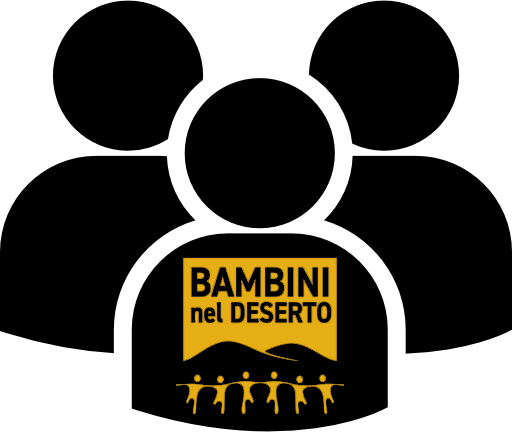 I Sostenitori di BnD
I Sostenitori di BnD
